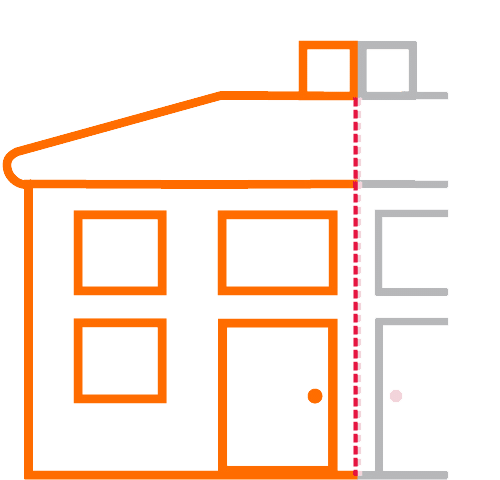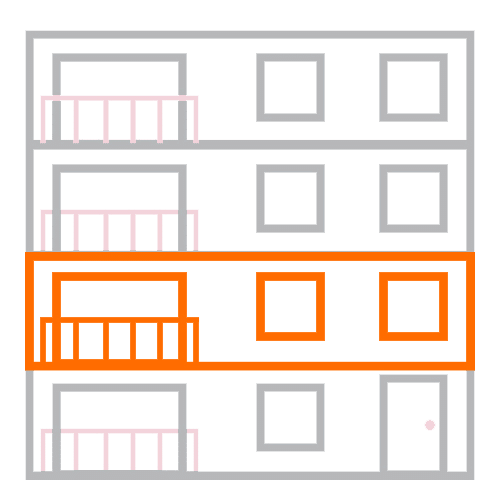Economic Implications of Smart Insulation Adoption
Smart insulation technologies present a promising avenue towards achieving significant economic benefits for both residential and commercial sectors. The initial investment required for the adoption of smart insulation may seem higher compared to traditional methods; however, the long-term cost-effectiveness proves to be advantageous. By reducing energy consumption and subsequently lowering utility bills, smart insulation offers considerable savings over its operational lifespan. Moreover, the potential to qualify for government incentives and rebates further enhances the financial attractiveness of these advanced insulation solutions.
Furthermore, the employment of smart insulation systems can also contribute towards increasing property value. Buildings equipped with energy-efficient features, such as smart insulation, are perceived as desirable assets in the real estate market. This premium associated with sustainability features can potentially translate into higher property prices and rental rates. As awareness regarding environmental impact and energy efficiency grows amongst consumers, properties with smart insulation are likely to garner increased interest, indicating a positive return on investment for stakeholders.
CostEffectiveness of Smart Insulation over Traditional Methods
Smart insulation technologies have been gaining traction in the construction industry due to their cost-effectiveness over traditional methods. By incorporating smart insulation solutions into buildings, property owners can benefit from long-term energy savings and reduced operational costs. This can lead to significant financial advantages over time, as smart insulation helps in regulating indoor temperatures efficiently, thus lowering the need for constant heating or cooling.
Furthermore, the durability and longevity of smart insulation materials contribute to their cost-effectiveness when compared to traditional insulation methods. Smart insulating materials are designed to withstand various environmental conditions, ensuring that they maintain their efficiency and effectiveness over a prolonged period. This results in reduced maintenance and replacement costs, making smart insulation a valuable investment for both residential and commercial properties looking to optimise their energy consumption and lower their overall expenses.
Environmental Considerations in Insulation
Insulation plays a crucial role in reducing energy consumption and greenhouse gas emissions, making it a key component in creating environmentally friendly buildings. By minimising heat transfer, insulation helps maintain stable indoor temperatures, reducing the need for excessive heating or cooling. This not only lowers energy usage but also decreases the overall carbon footprint of buildings, contributing to a greener and more sustainable environment.
Furthermore, the materials used in insulation can have a significant impact on the environment. Opting for eco-friendly and sustainable insulation materials, such as recycled cellulose or sheep’s wool, can further enhance the environmental benefits of insulation. These materials are not only renewable and biodegradable but also often have lower embodied energy compared to traditional insulation materials. Making conscious choices about insulation materials can lead to a more sustainable construction industry and a healthier planet for future generations.
Role of Smart Insulation in Promoting Sustainability
Smart insulation plays a crucial role in promoting sustainability by significantly reducing energy consumption in buildings. By effectively regulating indoor temperatures, smart insulation helps to minimise the need for constant heating and cooling, thus lowering overall energy usage. This not only leads to reduced utility bills for individuals and businesses but also contributes to a decreased carbon footprint, aligning with global efforts to combat climate change. The sustainable benefits of smart insulation extend beyond energy savings, as they also enhance the overall comfort and livability of indoor spaces.
Furthermore, the long-term durability and effectiveness of smart insulation materials contribute to the longevity of buildings, reducing the frequency of renovations and replacement. This not only minimises the environmental impact associated with the production and disposal of building materials but also promotes a more sustainable approach to construction and maintenance. By incorporating smart insulation technologies, buildings can operate more efficiently, consume fewer resources, and support a greener future for generations to come.
Implementation Challenges of Smart Insulation
Implementation challenges for smart insulation technologies can present hurdles for widespread adoption within the construction industry. One significant challenge is the initial investment required to install these advanced insulation systems. While the long-term cost savings are evident, companies may be hesitant to allocate resources upfront, especially if they are accustomed to using traditional, cheaper insulation methods. This financial barrier can be a deterrent for organisations looking to integrate sustainable practices into their operations.
Furthermore, another obstacle is the lack of widespread knowledge and expertise in smart insulation technologies. Many contractors and builders may not be familiar with the intricate details and installation processes of these innovative systems. This gap in understanding can lead to errors in implementation, reducing the overall effectiveness of the insulation. Education and training programmes tailored to smart insulation solutions are crucial in overcoming this challenge and ensuring that industry professionals are equipped to successfully incorporate these technologies into their projects.
Overcoming Barriers to Adoption of Advanced Insulation Technologies
Implementing advanced insulation technologies faces several challenges that need to be addressed to ensure widespread adoption. One significant barrier is the initial cost of smart insulation systems compared to traditional methods. While the upfront investment may be higher, it is essential to consider the long-term savings and benefits associated with smart insulation, such as reduced energy consumption and lower utility bills over time.
Another challenge is the lack of awareness and understanding of the advantages of smart insulation among consumers and businesses. Education and outreach programs are crucial in highlighting the environmental and economic benefits of advanced insulation technologies. By raising awareness and providing accessible information about the cost-effectiveness and sustainability of smart insulation, more individuals and organizations can be encouraged to make the switch towards energy-efficient solutions.
FAQS
Table of Contents
ToggleWhat are smart insulation technologies?
Smart insulation technologies refer to advanced materials and methods used to regulate indoor temperature more efficiently, leading to energy savings and increased sustainability.
How does smart insulation compare to traditional insulation methods?
Smart insulation is more cost-effective in the long run due to its ability to adapt to environmental conditions, leading to higher energy savings and reduced carbon footprints compared to traditional insulation methods.
What are the environmental benefits of using smart insulation?
Smart insulation plays a crucial role in promoting sustainability by reducing energy consumption, lowering greenhouse gas emissions, and contributing to a healthier indoor environment.
What are some challenges in implementing smart insulation technologies?
Implementation challenges of smart insulation include initial costs, lack of awareness about advanced insulation options, and the need for skilled professionals for installation and maintenance.
How can barriers to the adoption of advanced insulation technologies be overcome?
Barriers to adopting smart insulation can be overcome through incentives such as government subsidies, raising awareness about the benefits of advanced insulation, and providing training for professionals in the industry.
Related Links
Sustainable Building Codes and Standards for Energy-Efficient Insulation
Government Initiatives for Long-Term Energy Efficiency through Insulation





